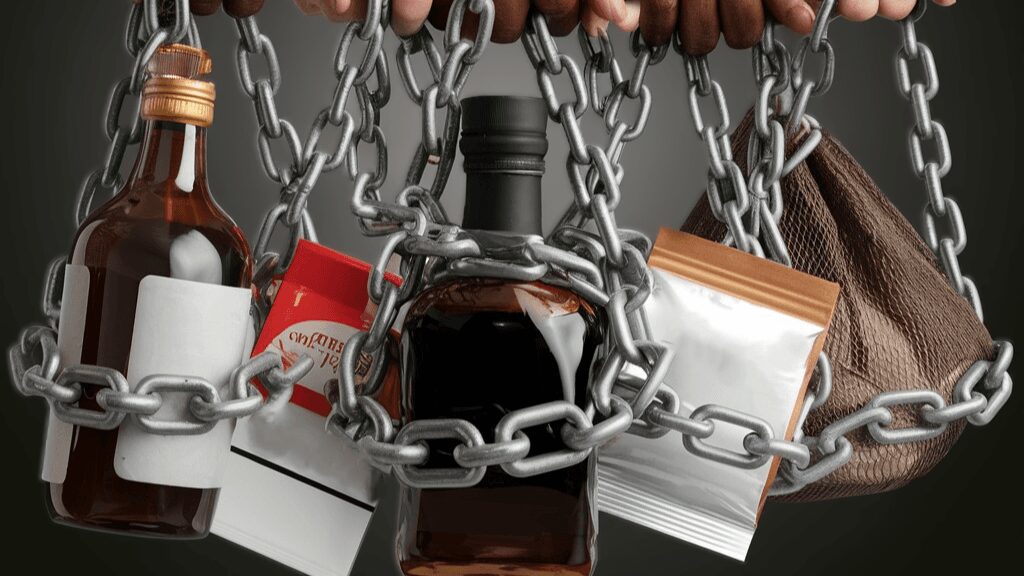
Neurodivergence and Substance Abuse: A Tangled Web Worth Untangling
Let’s talk about a topic that’s as tricky as trying to fold a fitted sheet: neurodivergence and substance abuse. If you’re here, you’ve probably wondered why so many neurodivergent (ND) individuals seem to have a complicated relationship with substances. Is it self-medication? Coping mechanisms gone awry? Or is it something deeper?
Before we dive in, let’s clear one thing up: substance abuse can affect anyone. However, exploring the unique challenges ND individuals face helps us better understand the why, how, and “what now?” of this complex issue.
Why Is Substance Abuse Common Among Neurodivergent People?
The reasons behind substance abuse in neurodivergence are as varied as the ND community itself, but a few themes pop up more often than not:
Unlock peak brain performance with science-backed biohacks. Join free now & get your guide for just £4.99 (45% off)!

1. Self-Medication
Imagine having a brain that feels like a radio stuck between two stations. Now, imagine someone hands you something that quiets the static. Whether it’s stimulants for undiagnosed ADHD or depressants for overwhelming anxiety, many ND individuals unknowingly turn to substances to manage their symptoms.
2. Sensory Overload and Escape
The world can be loud, bright, and downright overwhelming for many ND people. Substances might offer an (albeit temporary) escape from the chaos.
Example: Think of it like putting on noise-cancelling headphones, except the headphones are a strong drink, and they come with a headache the size of Texas.
3. Social Challenges
For some, the pressure to fit into NT social norms is exhausting. Substances can become a way to “blend in” or ease the discomfort of social interactions.
4. Reward System Dysregulation
Many ND brains, especially those with ADHD, have dopamine systems that love to play hard to get. Substances can artificially boost those feel-good chemicals, creating a cycle that’s hard to break.
Neurotypical People Aren’t Off the Hook
Let’s reiterate that NT individuals aren’t immune to substance abuse. While the paths may differ, NTs also face stress, trauma, and the siren call of societal pressures. The point here isn’t to single out ND people but to highlight unique vulnerabilities while acknowledging that this is a human issue.
What Symptoms Does Substance Abuse Exacerbate in Neurodivergent Individuals?
Substance abuse doesn’t just magnify ND traits. It can twist them into unrecognisable shapes, making everyday challenges feel insurmountable. Here’s how it can play out for specific conditions:
- ADHD: Increased impulsivity, worsened focus, and erratic behaviour. Think of it as adding a turbo boost to an already unpredictable rollercoaster.
- Common Substances: Stimulants like cocaine can heighten impulsivity and restlessness, while depressants like alcohol may temporarily calm but impair judgment and focus in the long run.
- What it Feels Like: Sudden bursts of energy followed by crashes, or foggy thinking that makes decision-making impossible.
- Autism: Heightened sensory sensitivities, withdrawal from routines, and struggles with emotional processing. Substances can add chaos to a system that thrives on predictability.
- Common Substances: Depressants like alcohol or cannabis might initially provide relief from sensory overload but often lead to intensified sensitivities or emotional numbness.
- What it Feels Like: Temporary escape from overwhelming sensations, only to return with heightened sensitivity and disorientation.
- BPD: Amplified emotional dysregulation and increased risk of destructive behaviours. Substance abuse can exacerbate the core struggles of BPD, leading to more intense highs and lows.
- Common Substances: Stimulants like methamphetamine may fuel risky decisions, while depressants can deepen feelings of abandonment or despair.
- What it Feels Like: Emotional chaos on steroids, like erratic moods, impulsive actions, and a constant battle to regain stability.
Substance abuse also casts a long shadow on relationships, work, and overall well-being. Loved ones may feel helpless as they watch behaviours escalate, leading to a breakdown of trust and connection.
And let’s not forget the toll it takes on other relationships, work, and overall well-being.
The BPD Connection: A Spicy Wildcard
While BPD (Borderline Personality Disorder) isn’t traditionally classified as neurodivergence, there’s a growing conversation about its overlaps with ND traits. Emotional dysregulation, sensory sensitivities, and difficulties in relationships are challenges that individuals with BPD often face, challenges that also resonate with the ND community.
Think of BPD as the spicy wildcard in this deck. Its mix of traits means individuals with BPD are just as likely to encounter the pitfalls of substance use, often as a way to numb emotional pain or regulate overwhelming feelings. Including BPD in this discussion broadens our understanding of how various neurodivergent and neurodivergence-adjacent traits intersect with substance abuse.
- Emotional Dysregulation: Intense and fluctuating emotions that can feel overwhelming.
- Sensory Sensitivities: Being acutely aware of physical and emotional stimuli.
- Interpersonal Struggles: Navigating relationships can be uniquely challenging.
Why Does This Happen More Often in ND Individuals?
The intersection of neurodivergence and substance abuse isn’t random. It’s the result of unmet needs, societal stigma, and a lack of understanding. ND individuals often face:
- Misdiagnosis or Late Diagnosis: Without the right tools or support, many turn to substances as a coping mechanism.
- Stigma: Being labelled as “different” can lead to feelings of isolation, which substances might temporarily numb.
- Access to Proper Treatment: Traditional recovery programmes often overlook ND-specific needs, leaving gaps in care.
What to Do (Besides Just Calling a Therapist)
You thought we were going to tell you to seek professional help, didn’t you? Well, you’re right… but let’s go beyond that. Healing isn’t about slapping a weighted blanket on your problems or downloading the first mindfulness app you see (though both are lovely). Let’s dig deeper into the nitty-gritty of lasting change.
Start with the Root Cause
Think of substance abuse as the symptom, not the problem. What’s the real issue? Is it an overwhelming work environment? Unprocessed trauma? Feeling like the square peg in a round world?
Take time to reflect and dig deep. Journaling, meditation, or even a brutally honest chat with a trusted friend can help unearth the “why” behind the behaviour. Dealing with the root cause isn’t a quick fix, but it’s the only way to stop playing emotional whack-a-mole.
- Example: If your stress stems from a toxic job, maybe it’s time to plan an exit strategy. Unhappy in a relationship? Explore whether it’s salvageable or if it’s time to move on. Life isn’t perfect, but identifying your triggers is the first step to reducing their impact.
Reimagine Your Environment
Sometimes, your surroundings set you up to fail. If every corner of your space reminds you of old habits, it’s time for a refresh:
- Declutter your home to remove reminders of past behaviours.
- Create a calm, safe space with sensory-friendly items like dimmable lights, soft furnishings, and calming scents.
- If possible, take a break from environments where temptations are strong (social circles, specific hangouts, etc.).
Replace, Don’t Remove
Your brain craves stimulation, routine, or connection, so give it something better. Instead of just saying “no” to unhealthy habits, say “yes” to alternatives:
- Physical Activities: Swap a night out for a morning hike or a gym session. Moving your body releases endorphins, reduces stress, and combats that restless energy.
- Creative Expression: Whether it’s painting, playing an instrument, or even adult colouring books, creativity can be a powerful outlet.
- Healthy Substitutes: Replace alcohol with sparkling water and fresh lime. Trade late-night doom scrolling for a puzzle, audiobook, or (dare we say it) actual sleep.
Build a Life That Fills Your Cup
If your day-to-day feels like a treadmill of obligations, no wonder you’re running on empty. Focus on building a life you don’t feel the need to escape from:
- Pursue interests that genuinely excite you, whether it’s photography, learning a new skill, or deep-diving into a hyper fixation. Think about it, what excites you? What makes you want to get up and go? Do it!
- Reassess your commitments and cut out what no longer serves you. You’re not a superhero (but you might have superpowers), you don’t have to do it all.
Connect With People Who Get It
Accountability is a game-changer, but let’s be clear: this doesn’t mean guilt-tripping or nagging. Surround yourself with people who understand your challenges and genuinely support your growth. That might be:
- A close friend who knows when to listen and when to call you out.
- An online community where you can share wins, vent struggles, and swap strategies.
- Support groups or forums tailored to your experiences.
Journaling and Mindfulness, Reimagined
Sure, we’ve all heard about journaling, but it doesn’t have to be a “Dear Diary” affair. Try:
- Bullet points of daily highs and lows.
- Writing down triggers and brainstorming ways to tackle them.
- Sketching out your thoughts if words aren’t your thing.
And mindfulness? Start small. Take 30 seconds to notice your breath when you feel overwhelmed. Progress is progress, no matter how tiny.
The Bigger Picture
Healing isn’t linear, and it isn’t always Instagram-worthy. There will be setbacks, tough days, and moments where it feels impossible. That’s okay. Keep going. Keep asking hard questions, keep making better choices, and keep showing up for yourself.
And remember, the Herbal Biohacker community is always here to celebrate your wins, share your struggles, and remind you that even on your hardest days, you’re not alone.
Herbal Allies and Supplements for Substance Recovery
While breaking free from substance abuse takes a multifaceted approach, some natural remedies can lend a helping hand. These aren’t magic fixes, but they can support your brain and body as you heal. Always consult a healthcare professional before adding new supplements to your routine.
1. Milk Thistle
- Why It Helps: Known for supporting liver health, milk thistle can assist in detoxifying your body, especially after alcohol use.
- How to Use: Available as capsules or teas, it’s a gentle way to give your liver some love.
2. Ashwagandha
- Why It Helps: This adaptogen helps reduce stress and anxiety while supporting adrenal health. Ashwagandha is perfect for soothing a nervous system that’s been through the wringer.
- How to Use: Capsules or powders mixed into smoothies or teas.
3. Magnesium Glycinate
- Why It Helps: A natural relaxant, magnesium can calm your mind, improve sleep quality, and ease muscle tension—all common struggles during recovery.
- How to Use: Capsules or powders; take before bed for the best results.
4. L-Tyrosine
- Why It Helps: A precursor to dopamine, this amino acid may help repair dopamine pathways that substances often deplete.
- How to Use: Capsules taken in the morning to support focus and motivation.
5. Passionflower
- Why It Helps: This herb is fantastic for reducing anxiety and improving sleep, making it easier to manage cravings and emotional fluctuations.
- How to Use: As a tea or tincture before bed.
6. Omega-3 Fatty Acids
- Why It Helps: Known for boosting brain health, omega-3s can help repair the cognitive and emotional toll substances often take.
- How to Use: Through supplements or fatty fish like salmon and mackerel.
7. Kudzu Root
- Why It Helps: Used traditionally to reduce alcohol cravings, it’s a potential ally for those looking to cut back or quit.
- How to Use: Capsules or teas, as directed.
Embracing Neurodivergence Without Substance Abuse
Whether you’re ND, NT, or somewhere in between, the journey away from substance abuse is a brave one. It’s about recognising patterns, seeking help, and finding healthier ways to cope. And if you’re ND, know this: your quirks aren’t flaws, they’re part of your brilliance.
Celebrate your neurodivergent brain. It’s capable of so much more than you realise.






